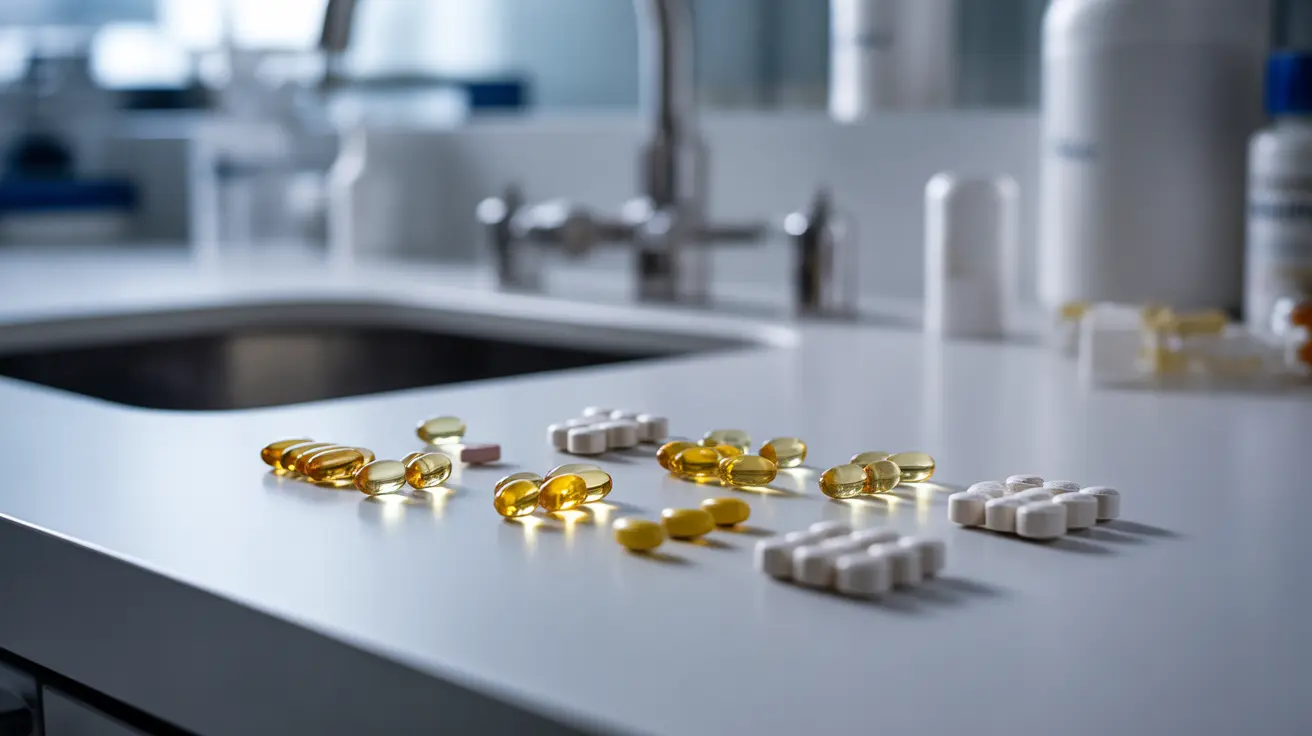Managing bipolar disorder often requires a multifaceted approach, and while medication remains the cornerstone of treatment, certain supplements may offer additional support for symptom management. Understanding which supplements show promise and how to use them safely alongside traditional treatments is crucial for anyone considering this complementary approach.
This comprehensive guide explores evidence-based supplements that may help manage bipolar disorder symptoms, along with important safety considerations and implementation strategies. Remember that any supplement regimen should always be discussed with your healthcare provider before beginning.
Key Supplements for Bipolar Disorder Management
Omega-3 Fatty Acids
Research suggests that omega-3 fatty acids, particularly EPA and DHA found in fish oil, may help stabilize mood in people with bipolar disorder. These essential fatty acids play a crucial role in brain function and may help reduce inflammation associated with mood disorders.
Recommended forms include:
- High-quality fish oil supplements
- Algae-based supplements for vegetarians
- Supplements with higher EPA than DHA content
B-Complex Vitamins
B vitamins are essential for proper brain function and neurotransmitter production. Deficiencies in certain B vitamins have been linked to mood instability and decreased treatment response. Key B vitamins include:
- Vitamin B12 for nerve health
- Folate for mood regulation
- Vitamin B6 for serotonin production
N-Acetylcysteine (NAC)
This powerful antioxidant has shown promise in managing bipolar depression symptoms. NAC may help regulate glutamate, a neurotransmitter involved in mood regulation, and reduce oxidative stress in the brain.
Additional Supportive Supplements
Vitamin D
Many individuals with bipolar disorder show low vitamin D levels. Supplementation may help improve mood stability and overall mental health outcomes, particularly in regions with limited sun exposure.
Magnesium
This essential mineral plays a crucial role in nerve function and mood regulation. Magnesium supplementation may help reduce anxiety and improve sleep quality in people with bipolar disorder.
Probiotics
Emerging research suggests a strong connection between gut health and mental health. Quality probiotic supplements may help support mood stability through the gut-brain axis.
Safety Considerations and Implementation
Before starting any supplement regimen, consider these crucial factors:
- Always consult with your healthcare provider first
- Start with one supplement at a time to monitor effects
- Choose high-quality supplements from reputable manufacturers
- Watch for potential interactions with medications
- Keep detailed records of any effects or side effects
Frequently Asked Questions
What supplements are most commonly recommended to help manage bipolar disorder symptoms?
The most commonly recommended supplements for bipolar disorder include omega-3 fatty acids, B-complex vitamins, N-acetylcysteine (NAC), vitamin D, and magnesium. These supplements have shown potential benefits in research studies, though individual responses may vary.
Can omega-3 fatty acids from fish oil improve mood stability in bipolar disorder?
Yes, research suggests that omega-3 fatty acids, particularly EPA, may help improve mood stability in bipolar disorder. Studies indicate that doses between 1-2 grams daily may be beneficial when used alongside traditional treatments.
Are there any risks or side effects of taking supplements alongside bipolar disorder medications?
Yes, certain supplements can interact with bipolar medications, potentially affecting their effectiveness or causing adverse reactions. Common concerns include increased bleeding risk with omega-3s and some medications, and potential interactions between herbal supplements and mood stabilizers.
How should I safely incorporate supplements like B vitamins or N-acetylcysteine into bipolar disorder treatment?
Start by consulting your healthcare provider, begin with one supplement at a time, and start with lower doses. Monitor your response carefully and maintain regular communication with your healthcare team about any changes in symptoms or side effects.
Do supplements like magnesium, vitamin D, or probiotics have proven benefits for bipolar disorder management?
While research is ongoing, these supplements show promising results in supporting overall mental health and mood stability. Vitamin D supplementation may be particularly beneficial for those with documented deficiencies, while magnesium and probiotics may help with sleep and gut health, respectively.




